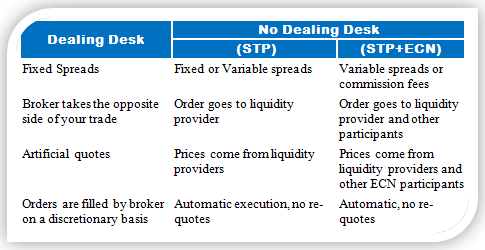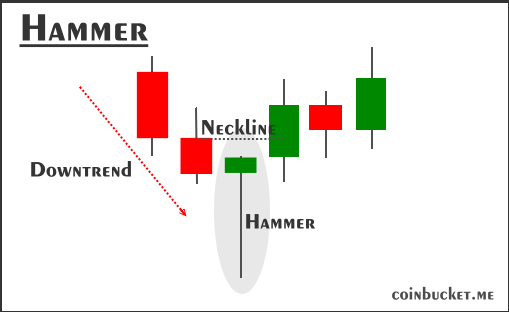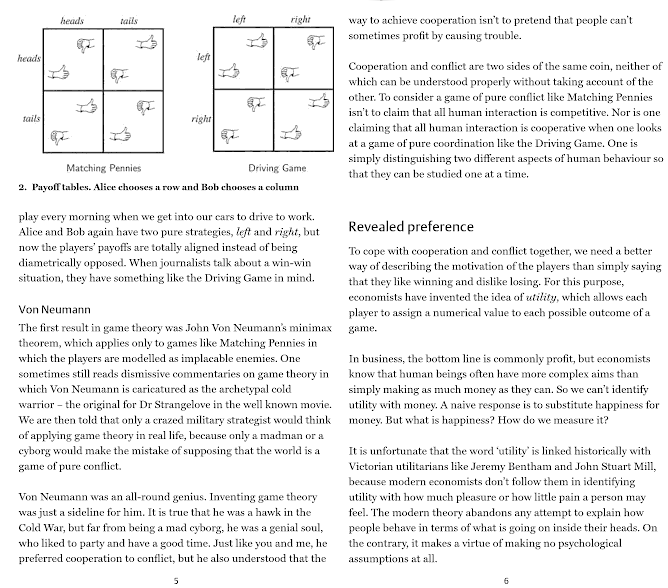Contents:


Merchant banks mainly work with small-scale enterprises which might be unable to raise funds by way of an preliminary public offering. A merchant financial institution works with clients that are not large enough to go for preliminary public providing however are privately held. The service provider banks do not act as repositories for savings of the people. Merchant banks in the U.S. are financial institutions that take care of international finance for multinational companies. Merchant banks traditionally perform worldwide financing and underwriting together with actual property, trade finance, overseas investment, and different worldwide transactions.
One is Corporate Counseling which offers advice to companies and gives them suggestions on how to earn more, how to resolve issues and the likes. They also offer services like estimating the funds and raising the funds needed for a certain company. Raising of funds can come from the capital market or other new ideas that the bank can offer.
DRC – Nigeria: Why are Lagos bankers struggling in Kinshasa? – The Africa Report
DRC – Nigeria: Why are Lagos bankers struggling in Kinshasa?.
Posted: Thu, 19 Jan 2023 08:00:00 GMT [source]
They often indulge in work with only merchant banking meaning and multinational companies. Merchant banks offer a wide range of services such as underwriting, issuing of securities, asset management, portfolio management, and advisory services. They also provide specialized services such as capital raising, merger and acquisition advice, foreign exchange transactions, and project finance.
They are also responsible for handling the planning and advertisement part of the business. They also offer their clients management advice as well as administer stock distributions and bond interest. The organisation’s structure is comparatively loose compared to the corporate banks. CAs, experts and businesses can get GST ready with ClearTax GST software & certification course. Our GST Software helps CAs, tax experts & business to manage returns & invoices in an easy manner. Our Goods & Services Tax course includes tutorial videos, guides and expert assistance to help you in mastering Goods and Services Tax.
Mutual fund Investments
Smishing is a deception technique where the fraudster uses Short Message Service to send false message to lure you to call a phone number or visit a website for giving your personal confidential banking information. Vishing is a deception technique where the fraudster uses a phone call to lure you into giving your personal confidential banking information. Download more important topics, notes, lectures and mock test series for B Com Exam by signing up for free. Merchant banking was first started in India in 1967 by Grindlays Bank.
- These elements have has affected Merchant Banking activities in India.
- Later they extended their services to the governments of under developed countries to raise the long term funds through the floatation of bonds in the London money market.
- These banks are experts in international trade, which makes them specialists in dealing with multinational corporations.
- It is important to mention there are several other services that merchant banks provide, and a merchant bank may specialize in a function or take up other activities as well.
- ➡️Merchant banks are typically more selective when it comes to the clients they work with.
Merchant banking financial services include underwriting, mergers and acquisitions advice, and corporate restructuring. In India there are many banks which are into the sector of service provider banking a few of the banks are ICICI, State Bank Of India, Punjab National Bank etc. These banks are specialists in worldwide trade, which makes them specialists in coping with multinational companies. A merchant banker normally refers to a agency or organization involved in all elements of issue management. Traditional service provider banks primarily carry out international financing and underwriting actions.
MERCHANT BANKING
LIC, RCI , Industrial Development Bank of India , Unit Trust of India , State Industrial Development Corporation etc. over the years. Assist the enterprises in procuring finance by guaranteeing the bank loans and advances. Merchant bank is related to the primary market whereas the commercial markets are more into secondary markets. They have to be very keen with their details as they help out their client’s businesses with advice on where to take the necessary risks.
Merchant banks provide trade finance services, such as issuing letters of credit, arranging letters of guarantee, and providing foreign exchange services. Merchant banker first makes an appraisal of the project to satisfy that it is viable b. He ensures that the project adheres to the guidelines for financing industrial projects. It helps in designing capital structure, determining the promoter‗s amount of term loan to be raised. After verifications of the project, the Merchant Banker arranges for a preliminary meeting with financial institution. If the financial institution agrees to consider the proposal, the application is filled and submitted along with other documents.
Financial Markets and Institutions
It refers to the effective management of Securities i.e., the merchant banker helps the investor in matters pertaining to investment decisions. Taxation and inflation are taken into account while advising on investment in different securities. The merchant banker also undertakes the function of buying and selling of securities on behalf of their client companies. Investments are done in such a way that it ensures maximum returns and minimum risks. ‘Hundi’ was the main instrument of credit used by indigenous bankers before the coming of western merchants in India.
The origin of merchant banking can be traced back to 13th century when a few family owned and managed firms engaged in sale and purchase of commodities were also found to be engaged in banking activity. These firms not only acted as bankers to the kings of European States, financed coastal trade but also borne exchange risk. A merger is a blending of two companies into a single company where one survives and other loses its corporate existence. A takeover is the purchase by one company obtaining controlling interest in the share capital of another existing company.
Consultancy denotes providing advice, guidance, and service for remuneration. It involves the provision of a wide range of services that help businesses from its inception to successful operations to winding up the business. Merchant banking is a professional service provided by the merchant banks to their customers considering their financial needs, for adequate consideration in the form of fee.
Merchant banking is a financial service provider that offers a wide range of services such as underwriting, issuing of securities, asset management, portfolio management, and advisory services. Merchant banks provide specialized services to large corporations, high net worth individuals, and institutional investors. Credit Syndication refers to obtaining of loans from single development finance institution or a syndicate or consortium. Merchant Banks help corporate clients to raise syndicated loans from commercials banks. Merchant banks helps in identifying which financial institution should be approached for term loans.
It has been seen over the years that the demand for merchant banking is ever increasing as it has helped many corporations steer to high progress, returns and incomes. This means that any person who is included while managing the intricate aspects of a business can be regarded as a merchant banker. Such banks could be sections of greater business or investment banks, and they generally execute their business worldwide. Big companies need to take help from commercial banks as it helps them not fall in the form of major losses. Investment banks typically offer services such as underwriting, trading, and market making. In short, merchant banking involves servicing any financial need of the client.
They would also require specific documents from their clients to prove that they are covered within the scope of clients any merchant bank can assist. Merchant banking requires a high level of expertise and experience in financial markets, as well as strong relationships with other financial institutions, regulators, and key stakeholders. The functions of merchant banking in India are governed by Securities and Exchange Board of India regulations, 1992. SEBI Regulations 1992, provide guidelines for merchant banks fair, dynamic, and flexible working, in 5 chapters. SEBI categorizes merchant banks in four divisions and has prescribed their minimum net worth required for registration. ➡️Merchant banks are often able to offer more competitive interest rates and fees than other financial institutions.
Investment banks also help in initial public offerings , secondary offerings, and private placements. The main advantages of using merchant banks are access to capital markets, expertise in dealing with financial products and services, and the ability to provide valuable advice. Merchant banks can provide advice on mergers and acquisitions, restructuring, and project financing. They can also offer a wide range of services such as underwriting, issuing of securities, asset management, and portfolio management. Resurgent India Limited is a highly regarded financial advisory firm in India that has been classified as a Category I Merchant Bank by the Securities and Exchange Board of India .
Merchant banks are banks that conduct fundraising, financial advising and loan services to large corporations. Later they prolonged their services to the governments of underneath developed nations to lift the long term funds through the floatation of bonds in the London cash market. Over the period they prolonged their providers to loan syndication, underwriting the issues, portfolio administration and so on. It comprised of merchant bankers who intermediated or assisted in financing the transactions of other merchants and their very own commerce too.

Merchant banks are often confused with investment banks; however, they significantly differ from investment banks in terms of function and service providing. It is to be noted that they only provide services to large corporations, which is what sets them apart from the local commercial banks. If you have a corporate business, then merchant banking might be ideal. In summary, merchant banking has a long history dating back to medieval Italy and has evolved over time to become a more institutionalized and diversified financial service. Anyone can be a merchant banker as long as they have all the requirements necessary for the position. Some would require applicants to have a bachelor’s degree that is related to banking while others require experience in the same field.

Later, merchant Bankers were known as “commission agents” who handled the coastal trade on commission basis and provided finance to the owners or supplier of goods. They made investments in goods manufactured by sellers and made huge profits. The sole objective of these merchant bankers was profit maximisation by making investments in risky projects. The merchant banks are engaged in international financing activities whereas the investment banks are concerned with underwriting and issuance of securities.
They also help clients issue equity shares, preference shares, and debentures to the public and facilitate equity underwriting. They assist private companies in generating capital from both domestic and international markets through underwriting and securities issuance. In addition, they invest on behalf of clients in various financial instruments for various projects. Lastly, they act as financial intermediaries and promote new enterprises. The history of merchant bank can be dated back to 17th & 18th centuries when it first started in Italy & France.
The Evolution of Banking Over Time – Investopedia
The Evolution of Banking Over Time.
Posted: Sat, 25 Mar 2017 13:35:34 GMT [source]
These might embrace, but aren’t limited to, international corporate investing, foreign actual estate investment, commerce finance, and the facilitation of international transactions. In 1967, when the government gave license for the establishment of a National Grindlays bank in 1967, Merchant banking started in India. Although many financial institutions like IFCI, ICICI, IDBI, LIC emerged in 1969, in ways working the same as merchant banks, the growth of the capital market was low. The Banking Commission 1972, to end the monopoly of foreign banks, suggested the need for establishing Merchant Banks in India.
